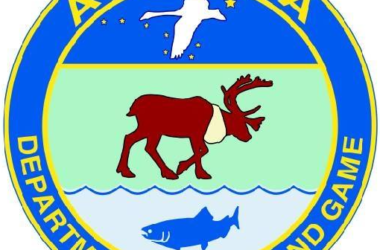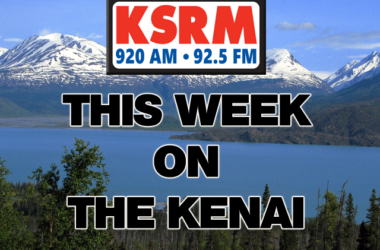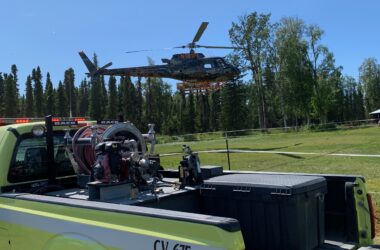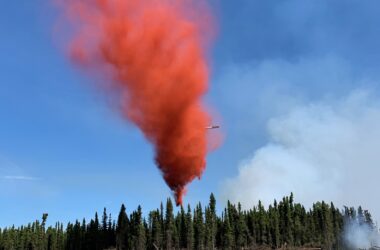In September Kroger, the parent company for Fred Meyer, announced its plan to sell 14 of the 35 Carrs Safeway stores in Alaska as part of a proposed $24.6 billion merger between Kroger and Albertsons, the two largest grocery store companies in the country. At that time it was never stated which specific stores would be sold, however, it is likely those locations would be Carrs Safeway stores which are both outside major metropolitan areas like Anchorage, and in close proximity to a competing Fred Meyer location.
Can you think of any areas on the Kenai Peninsula fitting that description?
Yes, per those criteria, the Safeway in Soldotna would be a prime candidate for divestiture. At first, this sounds like a bad thing, but is it? Well, to really answer that question more information is required.
A couple weeks after the proposed merger was announced, members of the Alaska delegation began expressing concerns about it. U.S. Senators Lisa Murkowski and Dan Sullivan penned a letter to FTC Chairperson Lina Kahn signaling Alaskans were united over shared concerns. Congresswoman Mary Peltola sent a letter to Kahn as well, asking chairperson to outright block the merger.
Then, in October members of the Alaska State Legislature added their voices to the opposition, writing the chairperson to express concerns over, among other things, fair pricing for groceries if the merger were allowed to go through.
Local labor unions in Alaska have also come out to oppose the merger, citing store closures, job losses, and lower wages and job standards as their concerns.
So, what we know thus far is how many people are concerned about the potential divestiture of their local grocery stores. Translation: everyone has questions.
That’s the biggest concern Representative Mary Peltola discussed in a call with KSRM. “We’re all just really concerned in Alaska about the potential for 14 stores. Closing and for a big change of hands,” Representative Peltola said. “We are all very dependent on our supply chains. Our grocery stores are such an integral part of our community.”
Despite the announcement of the proposed merger, and the company lined up to purchase those undetermined 14 Carrs Safeway stores (C&S Wholesale Grocers, the parent company for Grand Union and Piggly Wiggly), little additional information has been provided.
Grand Union is a supermarket chain based primarily in the Northeastern United States, and is comprised of all corporate owned grocery stores. Piggly Wiggly Carolina Co. is based out of South Carolina, with the majority of its stores located on the east coast. The most notable difference between Grand Union and Piggly Wiggly is that while all stores of the former are corporately owned, 46 of the 48 grocery stores of the latter are franchise locations.
If the Safeway in Soldotna were to be divested, which hat it wears and whether that hat is corporately or independently owned makes a big difference.
“There’s just a lot more that Alaskans want to know,” said Peltola. “[If] a regular Alaskan goes into a store and asks the manager [about the proposed merger], those managers probably aren’t at liberty to say anything. They might not be comfortable or know these kind of details. So it’s important that people in the delegation and other officials in Alaska really voice the concerns on behalf of our constituents.”
This is true. When KSRM reached out to the store director of the Safeway Soldotna, no comment was given, only direction to the official statements posted by Albertsons online.
Peltola says she is working on one potential solution to Alaskan’s lack of information on this issue. “I have invited the FTC Chair, Lina Khan, to come to Alaska and hear our concerns as well and to see for herself how concentrated our states grocery markets are first hand. And maybe come out to places like Soldotna, Kenai, Seward, Homer and see how challenging it is for consumers and grocers.”
A visit by the FTC Chair would hopefully offer a chance for the community to get some answers as to the specific “this-or-that” scenarios like which company would take ownership of local stores, and whether they would become franchise locations, or remain corporately owned.
Presently, the FTC can take one of three different routes with the potential Albertsons/Kroger merger. One, it can close its current investigation into the merger and let the deal go forward without any kind of challenge. Two, it can seek to stop the entire transaction by filing for a preliminary injunction in federal court. Whether or not this is approved by the court would be depend, pending an administrative trial on the merits of the injunction. And three, the middle road, is to enter into a negotiated consent agreement with both companies that includes provisions to ensure and restore competition in markets where the merger would have the greatest impact.
“We often see that when there are two competitors, there isn’t enough competition, but you add a third entity and that really changes the economics and the savings to consumers. And so we just want to make sure that Alaska is staying competitive,” Peltola said regarding that third, middle road option. “I just really think it’s important that Alaskans know that we are encouraging the FTC, the Federal Trade Commission to intervene.”
When asked about the proposed deal between the major grocers, and the possibility for a visit from the FTC Chair, Borough Mayor Peter Micciche offered a different perspective than those presented by Peltola.
“I’m sort of a free market guy. I don’t know that it’s the government’s role to control that kind of commerce,” said Mayor Micciche. “What I will say is if they leave an empty space, I will fill it. I’ll fill it with a competitor or a different business model that will continue to allow that competition to occur here so that we have some control. That’s what controls prices, is the ability and the need to have to compete with the person across the street.”
Whether or not Alaska delegates are able to convince the FTC Chair to visit the state, much less an area like the Kenai Peninsula is yet to be determined, but according to Peltola, who just Tuesday hosted a town hall on the Kroger/Albertsons deal, she and her fellow delegates will continue to work toward gathering information to ensure the best course of action is taken.






